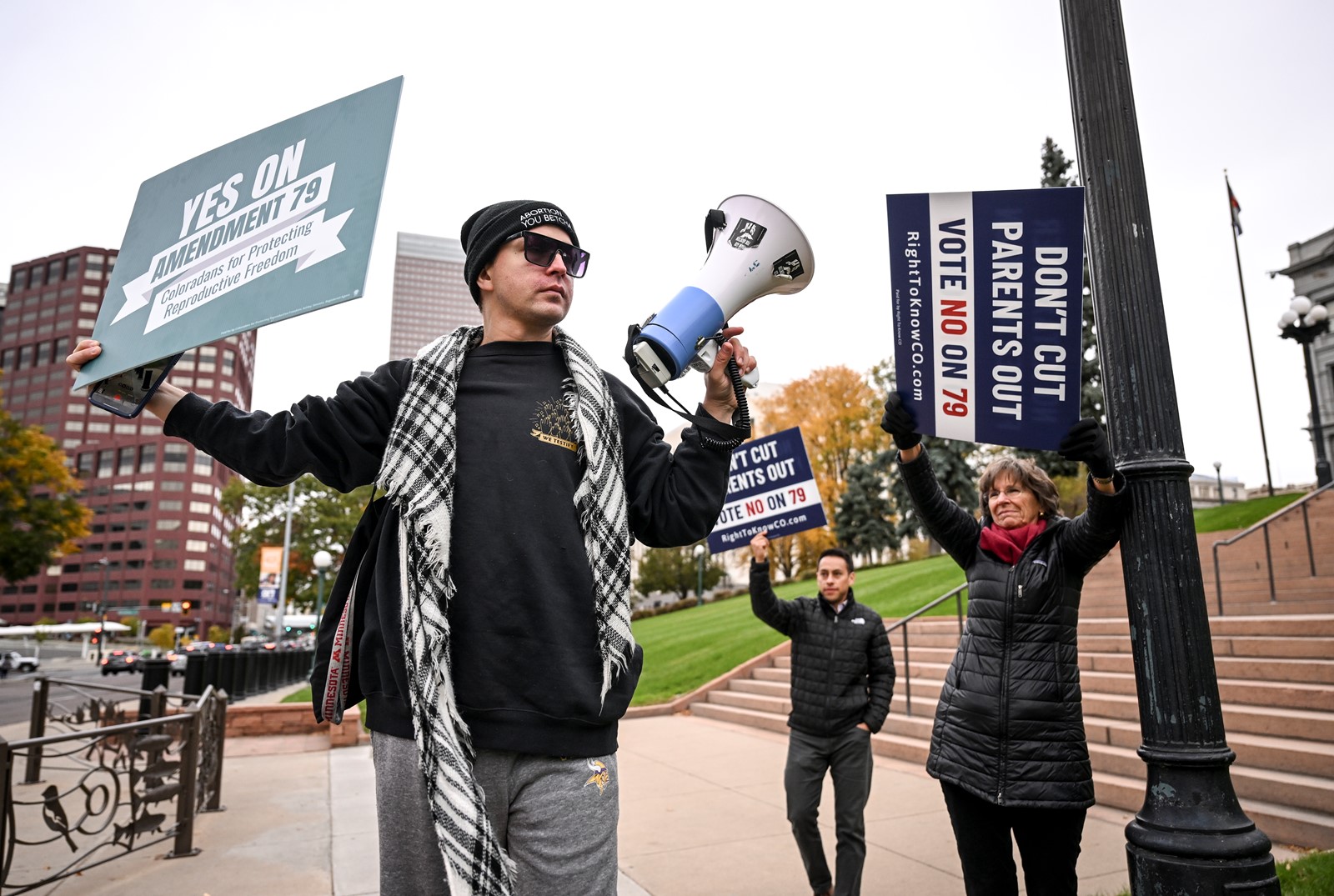

Colorado voters chose to enshrine access to abortion in the state’s constitution, with almost 61% of voters supporting Amendment 79 .
As of 8:40 p.m., the amendment had 1.2 million votes in favor. About 39% of voters opposed the measure. The Associated Press called the race at 8:39 p.m.
Amendment 79 needed the approval of at least 55% of voters — a higher threshold to pass because it would change the Colorado Constitution. It guarantees abortion access statewide by protecting it as a right in Colorado, thereby shielding it from the agendas of lawmakers. Here, abortion is currently allowed at any stage of pregnancy.
Amendment 79 also repeals a ban from 1984 that prohibits the use of state and local government funding for abortion services. That means that Medicaid recipients and public employees on government health insurance plans could have the procedures covered in the future.
Planned Parenthood of the Rocky Mountains celebrated the win.
“We’re so proud that Colorado, the first state in the country to legalize abortion, has now enshrined the right to this most fundamental health care into the state constitution, while also repealing an outdated ban on public insurance coverage, in recognition that rights alone are meaningless without access,” said Jack Teter, the regional director of government affairs, in a statement.
Colorado was one of 10 states where voters weighed on abortion access, with several also deciding whether or not to enshrine it within their own constitutions.
The other nine states include Arizona, Florida, Maryland, Missouri, Montana, Nebraska, Nevada, New York and South Dakota.
Support of Amendment 79 was led by Coloradans for Protecting Reproductive Freedom, a coalition of reproductive rights and progressive advocacy groups, which petitioned for the measure to make the ballot. The organization was a fundraising Goliath, with almost $6.4 million in its war chest through Nov. 1, according to TRACER, the website that discloses campaign finances.
Advocates argued that the passage of Amendment 79 would guarantee health care access and women’s freedom of choice because abortion would be insulated from future legislative decisions.
Opponents largely took issue with the use of taxpayer funds for abortion services, alleging that public spending could rise if the state and local governments opt to cover the procedure.


 PREVIOUS ARTICLE
PREVIOUS ARTICLE
